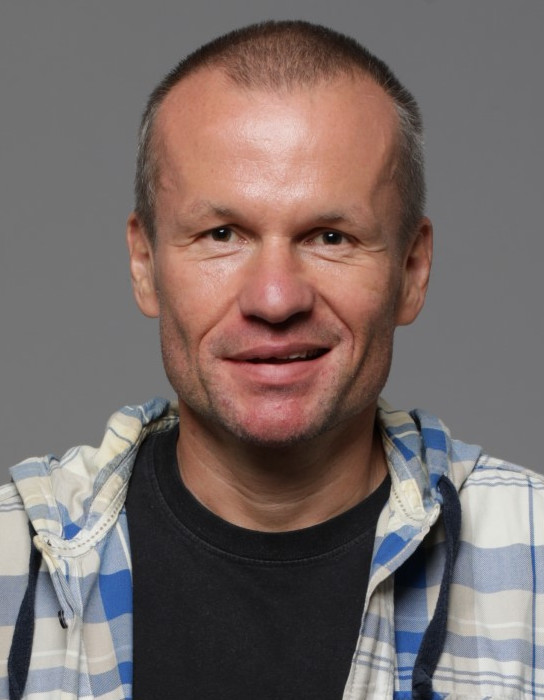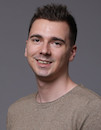Three-Dimensional Computer Vision
Data is displayed for academic year: 2023./2024.
Laboratory exercises
Course Description
The course studies basics of threedimensional computer vision. In particular, we consider pasive stereoscopic reconstruction, reconstruction withh structured light and specifics of reconstruction with LIDAR sensors.
Study Programmes
University graduate
[FER3-HR] Audio Technologies and Electroacoustics - profile
Elective Courses
(1. semester)
(3. semester)
[FER3-HR] Communication and Space Technologies - profile
Elective Courses
(3. semester)
[FER3-HR] Computational Modelling in Engineering - profile
Elective Courses
(3. semester)
[FER3-HR] Computer Engineering - profile
Elective Courses
(3. semester)
[FER3-HR] Computer Science - profile
Elective Courses
(3. semester)
[FER3-HR] Control Systems and Robotics - profile
Elective Courses
(3. semester)
Elective Courses of the Profile
(3. semester)
[FER3-HR] Data Science - profile
Elective Courses
(3. semester)
[FER3-HR] Electrical Power Engineering - profile
Elective Courses
(3. semester)
[FER3-HR] Electric Machines, Drives and Automation - profile
Elective Courses
(3. semester)
[FER3-HR] Electronic and Computer Engineering - profile
Elective Courses
(3. semester)
[FER3-HR] Electronics - profile
Elective Courses
(3. semester)
[FER3-HR] Information and Communication Engineering - profile
Elective Courses
(3. semester)
Elective Coursesof the Profile
(3. semester)
[FER3-HR] Network Science - profile
Elective Courses
(3. semester)
[FER3-HR] Software Engineering and Information Systems - profile
Elective Courses
(3. semester)
Learning Outcomes
- Explain advantages of reconstruction techniques based on pasive stereoscopy.
- Explain advantages of reconstruction based on active illumination.
- Explain advantages of reconstruction based on LIDAR sensors.
Forms of Teaching
Lectures
The course does not offer lectures in English.
LaboratoryOne exercise in each half of the semester.
Grading Method
| Continuous Assessment | Exam | |||||
|---|---|---|---|---|---|---|
| Type | Threshold | Percent of Grade | Threshold | Percent of Grade | ||
| Laboratory Exercises | 50 % | 20 % | 50 % | 0 % | ||
| Mid Term Exam: Written | 0 % | 40 % | 0 % | |||
| Final Exam: Written | 0 % | 40 % | ||||
| Exam: Written | 50 % | 80 % | ||||
| Exam: Oral | 20 % | |||||
Week by Week Schedule
- Image formation, calibration, vanishing points
- homography, essential matrix
- Feature detection, differential tracking, wide-baseline matching.
- Calibrated stereo: rectification, geometry, SGM, metric embeddings
- active 3D reconstruction: time of flight, laser scanners, structured light
- Structured light: projector/camera calibration, patterns for static scenes, patterns for dynamic scenes
- Multiview 3D reconstruction with structured light 1: classic methods of coarse and fine 3D point cloud registration
- Midterm exam
- Multiview 3D reconstruction with structured light 2: deep models for 3D point cloud registration
- Basics of 3D geometry and transformations, rotation and transformation matrices, rotation parameterizations, properties.
- Point cloud preprocessing, normal estimation, base plane estimation, 3D features and descriptors, registration (point-to-point, point-to-plane), ICP, RANSAC
- Effective point cloud representations, point reduction, projections, octree, voxels, kd-tree
- Odometry for autonomous robots and vehicles, odometry from 3D point clouds
- Exercises
- Final exam
Literature
For students
General
ID 223691
Winter semester
5 ECTS
L1 English Level
L1 e-Learning
30 Lectures
0 Seminar
0 Exercises
8 Laboratory exercises
0 Project laboratory
0 Physical education excercises
Grading System
89 Excellent
76 Very Good
63 Good
50 Sufficient


 Pristupačnost
Pristupačnost


